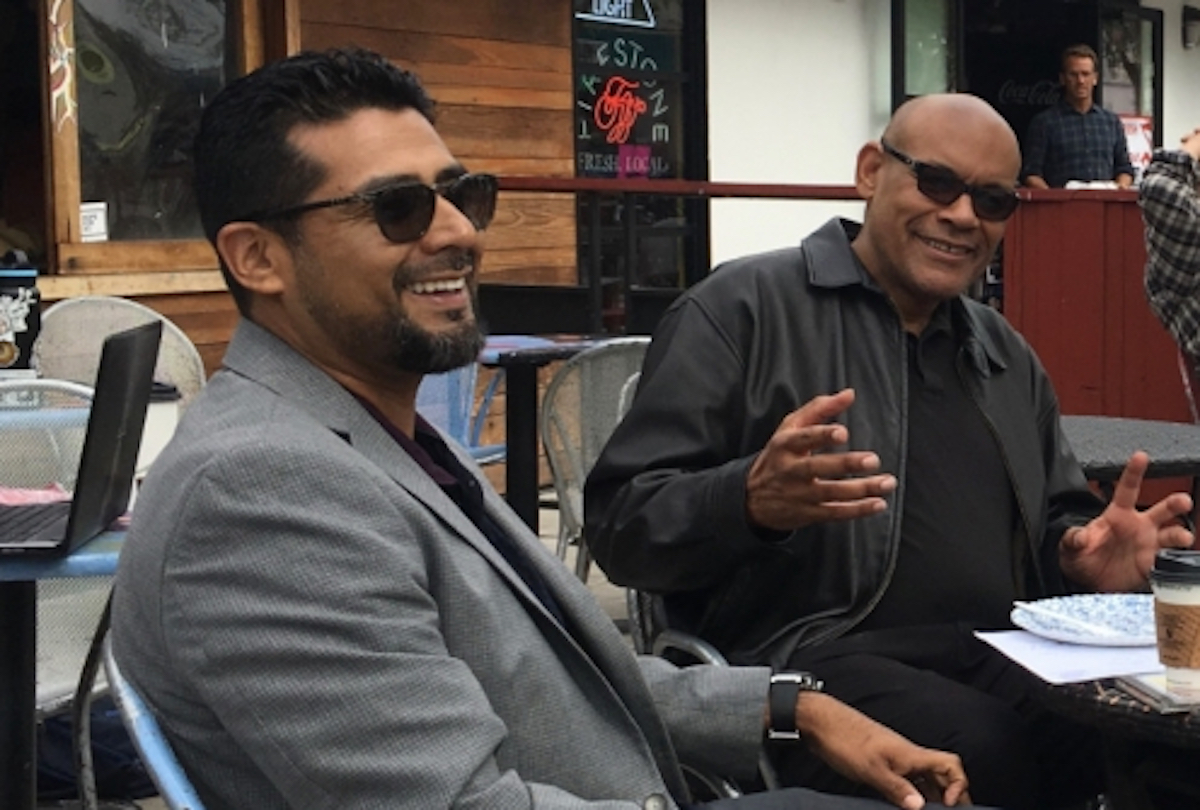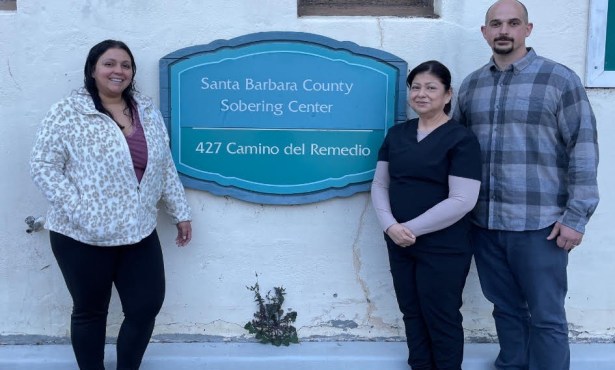Two UCSB Professors Get $1M MacArthur Endowment
Professors Jeffrey Stewart and Victor Rios Work to Center Experiences of Black and Brown Youth

Following the 2014 Isla Vista tragedy, during which a resident student went on a killing spree that left six people dead, UCSB began exploring different ways to build community. Professor Jeffrey Stewart, a Black Studies professor, decided to combine his expertise in the history of jazz with an effort to provide a space for community building, an effort that has led to a $1 million MacArthur endowment.
Jeffrey’s Jazz Coffeehouse started as a pop-up coffeehouse in Isla Vista run by Stewart and Sociology Professor Victor Rios with live music, spoken word, and discussions on important issues such as gender identity. They took a multidisciplinary approach to their project, involving UCSB art professor Kim Yasuda and other graduate art students.
The pair were always fighting for funding for their pop-up coffeehouse, so Rios approached Stewart with an opportunity to expand their project through the MacArthur chair position. After finding out that the MacArthur Foundation wanted to focus on equity in the criminal justice system, Rios felt that the chair position would be a perfect fit for both himself and Stewart.
“The MacArthur Foundation wants to impact the criminal justice system and how populations are highly impacted by criminal justice, how we could improve the way that they get treated by police and the criminal justice system,” Rios said. “So that was a natural fit.”
Through the funding, which allows the chairs to use the interest for five years, Stewart and Rios hope to expand their concept of a jazz coffeehouse to a few different locations across California, such as Los Angeles and Oakland.
Sign up for Indy Today to receive fresh news from Independent.com, in your inbox, every morning.
“I was saying maybe we should go down to Los Angeles and try to start doing this, try to create a sense that the promised land of California is not just for the adults, the privileged, the well-heeled,” Stewart said. “What about young Black and brown youth, immigrants, others. There’s a vibrant Ethiopian jazz scene in Los Angeles; connect with that community and sort of see if we could use this as a way to make them aware that a future at UCSB is not impossible.”
The goal, according to Rios, is to emphasize that Black and brown peoples are “central contributors to the making of this country,” and that their “culture, population, community, movements, [and] arts” are central to the making of the United States.
Stewart and Rios are hoping to create spaces for Black and brown youth through the coffeehouse to make their voices heard about issues, explore art and music, and feel empowered as a collective. In addition, they’d like to be able to connect attendees with resources and services through the coffeehouses.
“At least in the coffeehouse, with the spoken word, that might be a place for people to have their voices heard, and then dialogue with people, and maybe have something magical come out of it,” Stewart said. “We’re not trying to be like reformers. We’re just trying to create a space for something to happen. That is not happening now, which is young people being welcomed into a space of music and art in the city.”
Stewart said his and Rios’s project stems from a larger idea which can be traced back to W. B. DuBois.
“Even if you succeed, and people call you part of the talented 10th or whatever, your responsibility is for the other nine-10ths, to do something for the community,” Stewart said. “But it really comes out of this consciousness of, you know, doing something for the community.”
The ultimate goal, Rios said, is to continue community engagement with marginalized populations in California.
“How can we support our children in a way that provides some dignity, provides some prosperity, and acknowledges them and their families as central contributors to the making of this society,” Rios said. “My first step is continuing to network with local communities, local grassroots efforts that are helping young people that have been left behind.”
Correction: The MacArthur Foundation endowment is not a grant of money but a means to give Rios and Stewart access to the interest from $1 million for five years, when the endowment is returned for others’ use.



